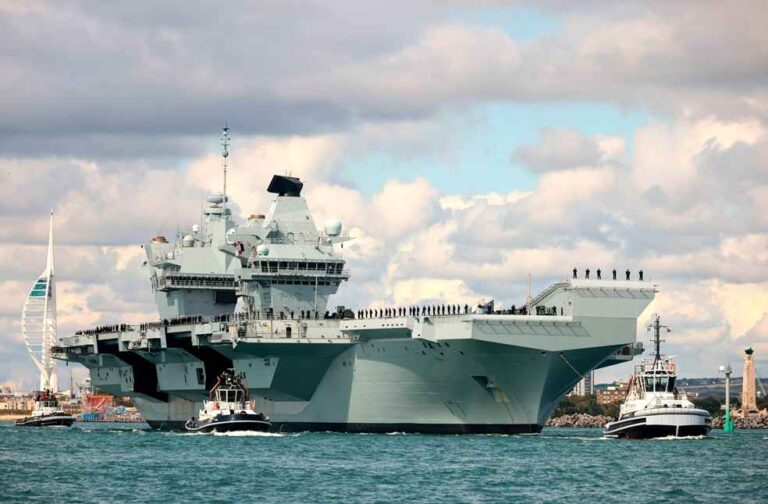United Kingdom : A rare test launch of a Trident missile by a British nuclear submarine has misfired and crashed off the coast of Florida.
The Defence Ministry has confirmed that this “anomaly” ensued during a drill involving HMS Vanguard. However, a representative has emphasized that the UK’s nuclear deterrent, which is the cornerstone of its defences, “remains safe, secure, and effective.”
The malfunction was caused by a test firing, which a source claimed would have been successful if a nuclear warhead had been used. The Royal Navy’s ageing nuclear weapons fleet has experienced its second Trident missile failure in a row, following a previous test-firing problem in 2016.
The United Kingdom possesses four submarines armed with nuclear weapons. Their primary responsibility is to ensure that at least one submarine is at sea at all times, to deter potential nuclear threats from nations such as Russia. Moreover, they are prepared to respond immediately in the event of a nuclear attack on the UK or its allies.
The Trident 2 missile was successfully launched from underwater using compressed gas in the launch tube. But its first-stage booster failed to ignite and the 60-tonne missile, fitted with dummy warheads, splashed into the Atlantic Ocean. To recover highly sensitive munitions, a search was immediately launched.
According to reports, a written ministerial statement indicating the seriousness of the incident will be released in Parliament. Rishi Sunak will likely face questions about the incident during Prime Minister’s Questions. HMS Vanguard, which has just completed a £500m refit, is undergoing final tests before returning to nuclear patrols.

A Representative of the Defence Ministry said that, despite the malfunction, submarines and their crews “have been proven fully capable of operating the UK’s Continuous At-Sea Deterrent, passing all tests during a recent demonstration and shakedown operation (DASO)- a routine test to confirm that the submarine can return to service following deep maintenance work.”
The spokesperson further added that, “The test has reaffirmed the effectiveness of the UK’s nuclear deterrent, in which we have absolute confidence. During the test, an anomaly occurred.”
“As a matter of national security, we cannot provide further information on this, however, we are confident that the anomaly was event specific, and therefore there are no implications for the reliability of the wider Trident missile systems and stockpile,” he remarked.
Before the missile launch last month, the US National Geospatial-Intelligence Agency warned shipping of the missile’s expected course towards the mid-Atlantic impact point. The missile was expected to travel 3,700 miles before crashing into the sea between Brazil and West Africa, according to the “hazardous operations” warning.
The Royal Navy last tested the unarmed Trident II D5 ballistic missile eight years before the new launch. In 2016, a missile was launched from HMS Vengeance and flew in the wrong direction. The Trident system has completed more than 190 successful trials during its service life.
TOP PICK | North Korea tests ‘underwater nuclear weapon system’; Report



